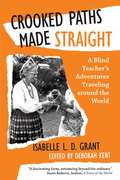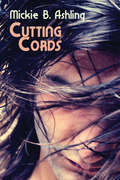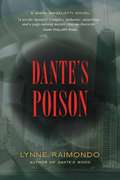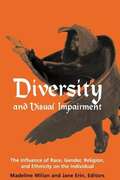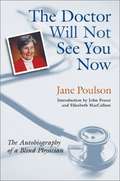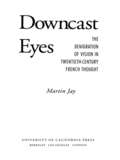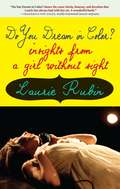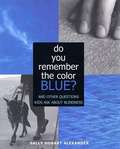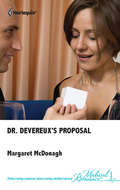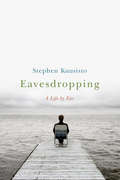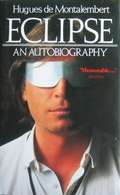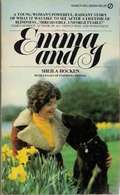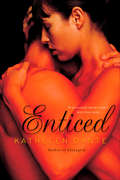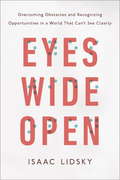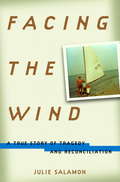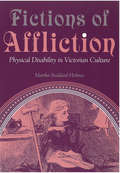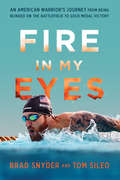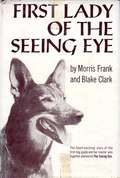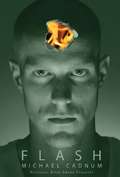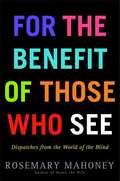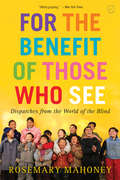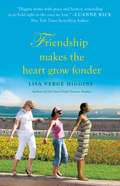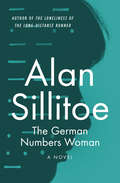Special Collections
Blindness and Visual Impairment Special Collection
Description: A collection featuring biographies, memoirs, fiction and non-fiction by and about members of the blind community. #disability
- Table View
- List View
Crooked Paths Made Straight
by Isabelle L. D. Grant and Deborah KentIn 1959, two years before she retired from teaching, Dr. Isabelle Grant set off on a yearlong journey around the world with Oscar, her long white cane, in her hand. She had been totally blind for the past twelve years.
In Crooked Paths Made Straight, she shares the story of her journey during which she visited twenty-three countries from Great Britain to Fiji. In Karachi, she traveled the streets by rickshaw and struggled to master the Urdu language. In India, she explored the Taj Mahal, and in Burma she slept in a room where lizards raced up and down the walls.
At a time when both women and blind people were generally seen as too helpless for solo travel, Grant fearlessly defied conventions. A dedicated teacher with a lifelong commitment to learning, her mission was to learn all she could about education in the countries she visited, in particular the education provided to blind children.
Completed in 1965, Crooked Paths Made Straight recounts Grant's journey, a story of dreams deferred that did not shrivel but sprang to life again and again.
Cry Purple
by Christine McdonaldThis is the story of the author's journey from almost two decades of prostitution, crack addiction and prison to her present life of blindness, motherhood and happiness.
Cutting Cords
by Mickie B. AshlingWhen Sloan Driscoll and Cole Fujiwara become reluctant roommates, neither man is willing to share too much. Sloan is instantly attracted to Cole but knows it's a hopeless cause; Cole has a steady girlfriend. But one night they share a joint, and Cole opens a window neither anticipated.
A relationship may be impossible--both men are living with heart-breaking secrets. While Sloan is smart, sassy, and a brilliant graphic artist, he's also a pothead with severe body image problems. Cole, a former major league pitcher, has his own personal crisis: he's going blind. Sloan and Cole are suffering on so many levels, they might not realize that the ultimate salvation could be within each other's arms.
Dante's Poison
by Lynne RaimondoBlind psychiatrist Mark Angelotti has just enrolled in a drug trial that holds out hope of restoring his eyesight when he again becomes entangled in a case that is rocking the Chicago legal community. After defending the manufacturer of the powerful antipsychotic drug Lucitrol against product-liability claims, attorney Jane Barrett has become somewhat of an expert on the controversial medication. So when her lover, investigative journalist Rory Gallagher, collapses from a fatal dose of the same drug, it falls to Hallie Sanchez, Barrett's oldest friend, to defend her on murder charges. Amid growing doubts about her friend's innocence, Hallie recruits Mark Angelotti to help her discredit the testimony of a crucial eyewitness. The pair succeeds in obtaining Barrett's release, but at a dreadful price. Mark sets out to investigate who else may have wanted the journalist out of the way. As he gets closer to the truth, he realizes the killer is still on the loose. But two questions remain for Mark: Will the drug trial succeed in restoring his eyesight? More important, will he live long enough to see this case to its end?From the Trade Paperback edition.
Diversity and Visual Impairment
by Madeline Milian and Jane N. ErinA scholarly collection of insightful essays which look at how visual impairment interacts with certain social characteristics to affect human personalities.
The Doctor Will Not See You Now
by Jane PoulsonA spiritual autobiography by Dr. Poulson takes the reader by the arm through the story of her career as a sighted medical scientist who became blind in the first year of her professional career. No reader will fail to be astonished and inspired by her accomplishments and optimism.
Downcast Eyes
by Martin JayLong considered "the noblest of the senses," vision has increasingly come under critical scrutiny by a wide range of thinkers who question its dominance in Western culture. These critics of vision, especially prominent in twentieth-century France, have challenged its allegedly superior capacity to provide access to the world. They have also criticized its supposed complicity with political and social oppression through the promulgation of spectacle and surveillance. Martin Jay turns to this discourse surrounding vision and explores its often contradictory implications in the work of such influential figures as Jean-Paul Sartre, Maurice Merleau-Ponty, Michel Foucault, Jacques Lacan, Louis Althusser, Guy Debord, Luce Irigaray, Emmanuel Levinas, and Jacques Derrida. Jay begins with a discussion of the theory of vision from Plato to Descartes, then considers its role in the French Enlightenment before turning to its status in the culture of modernity. From consideration of French Impressionism to analysis of Georges Bataille and the Surrealists, Roland Barthes's writings on photography, and the film theory of Christian Metz, Jay provides lucid and fair-minded accounts of thinkers and ideas widely known for their difficulty. His book examines the myriad links between the interrogation of vision and the pervasive antihumanist, antimodernist, and counter-enlightenment tenor of much recent French thought. Refusing, however, to defend the dominant visual order, he calls instead for a plurality of "scopic regimes." Certain to generate controversy and discussion throughout the humanities and social sciences, Downcast Eyes will consolidate Jay's reputation as one of today's premier cultural and intellectual historians.
Do You Dream in Color?
by Laurie RubinColors, Rubin tells us, affect everyone through sound, smell, taste, and a vast array of emotions and atmospheres. She explains that although she has been blind since birth, she has experienced color all her life. In her memoir Do You Dream in Color?, Laurie Rubin looks back on her life as an international opera singer who happens to be blind. From her loneliness and isolation as a middle school student to her experiences skiing, Rubin offers her young readers a life-story rich in detail and inspiration drawn from everyday challenges. Beginning with her childhood in California, Rubin tells the story of her life and the amazing experiences that led her to a career as an internationally celebrated mezzo-soprano. Rubin describes her past as a "journey towards identity," one she hopes will resonate with young people struggling with two fundamental questions: "Who am I?" and "Where do I fit in?" Although most of us aren't blind, Rubin believes that many of us have traits that make us something other than "normal." These differences, like blindness, may seem like barriers, but for the strong and the persistent, dreams can overcome barriers, no matter how large they may seem. This is what makes her story so unique yet universal and so important for young readers.
Do You Remember the Color Blue?
by Sally Hobart AlexanderChildren ask questions of an author who lost her vision at the age of twenty-six, including "How did you become blind?" "How can you read?" and "Was it hard to be a parent when you couldn't see your kids?"
Dr. Devereux's Proposal
by Margaret McdonaghIt's the sexy French accent that captures physiotherapist Laurie's attention-even before she's seen the gorgeous new doctor in Penhally Bay!Dr Gabe Devereux has come to the idyllic Cornish town to escape life-instead he walks straight into the heart of the community. And there's one woman who intrigues him more than most.Laurie is overawed by Gabe's attention. But she doesn't want her secret to force him to stay. Little does Laurie realize that, as her sight declines, Gabe is ready to lead her up the aisle and be her one and only guiding light...forever.
Eavesdropping
by Stephen KuusistoA memoir of blindness and listening rendered with a poet's delight by the author of the acclaimed Planet of the Blind. Blind people are not casual listeners. Blind since birth, Stephen Kuusisto recounts with a poet's sense of detail the surprise that comes when we are actively listening to our surroundings. There is an art to eavesdropping. Like Annie Dillard's An American Childhood or Dorothy Allison's One or Two Things I Know for Sure, Kuusisto's memoir highlights periods of childhood when a writer first becomes aware of his curiosity and imagination. As a boy he listened to Caruso records in his grandmother's attic and spent hours in the New Hampshire woods learning the calls of birds. As a grown man the writer visits cities around the world in order to discover the art of sightseeing by ear. Whether the reader is interested in disability, American poetry, music, travel, or the art of eavesdropping, he or she will find much to hear and even "see" in this unique celebration of a hearing life.
Eclipse
by Hugues De Montalembert and David NoakesUp until 1978, the author, a French count by birth, was a painter. He travelled extensively working on documentary films such as I A Dancer about Rudolph Nureyev and Margot Fonteyn. He took a deep interest in the culture of the countries he visited: the harlem voodoo in West Africa and Indonesian music in Bali. On May 25th 1978, when returning to his apartment in New York from a Greenwich Village coffee-house, he was met by two intruders who threw caustic solution in his face. At the age of thirty-five he was blinded for life. Hugues de Montalembert is currently based in Rome although he continues to travel between Europe, America and South East Asia. The French edition of ECLIPSE became a bestseller when it was published in 1982 and the author is currently working on his second book.
Emma and I
by Sheila HockenA touching and unique story of love and courage. This is Sheila Hocken's own story. A story of a young blind girl who sets out to fight for the right to live fully and to see again. Sheila's account of the events and people that transformed her life is moving and inspiring. Sheila introduces Emma, her beautiful chocolate-brown labrador, whose devotion and intelligence as a guide dog are inspiring. We also meet Don, who brings romance into Sheila's life - through a radio program! And we meet Mr Shearing, the skilled surgeon who performs the miracle which gives Sheila a whole new world.
Enticed
by Kathleen DanteSpecial ops agent Dillon Gavin is taking a break from his demanding schedule when his life takes an unexpected-and complicated-turn. Her name is Jordan Kane, a beautiful artist. Legally blind, she paints with her inner eye-which affords her an uncanny, and sometimes breathtaking, clairvoyance. What she sees in Dillon-comfortable in an unpredictable world of intrigue, espionage, and brute violence-is the kind of man that an artistic, gentle soul like Jordan never experienced before. Her sixth sense tells her that Dillon wants her. Her common sense says stay away. But from his first sensuous touch in the dark comes an irresistible urge that dares to take Jordan where's she's never gone before.
Eyes Wide Open
by Isaac LidskyIn this New York Times bestseller, Isaac Lidsky draws on his experience of achieving immense success, joy, and fulfillment while losing his sight to a blinding disease to show us that it isn’t external circumstances, but how we perceive and respond to them, that governs our reality.
Fear has a tendency to give us tunnel vision—we fill the unknown with our worst imaginings and cling to what’s familiar. But when confronted with new challenges, we need to think more broadly and adapt. When Isaac Lidsky learned that he was beginning to go blind at age thirteen, eventually losing his sight entirely by the time he was twenty-five, he initially thought that blindness would mean an end to his early success and his hopes for the future. Paradoxically, losing his sight gave him the vision to take responsibility for his reality and thrive. Lidsky graduated from Harvard College at age nineteen, served as a Supreme Court law clerk, fathered four children, and turned a failing construction subcontractor into a highly profitable business.
Whether we’re blind or not, our vision is limited by our past experiences, biases, and emotions. Lidsky shows us how we can overcome paralyzing fears, avoid falling prey to our own assumptions and faulty leaps of logic, silence our inner critic, harness our strength, and live with open hearts and minds. In sharing his hard-won insights, Lidsky shows us how we too can confront life's trials with initiative, humor, and grace.
Facing the Wind
by Julie SalamonRobert and Mary Rowe’s second child, Christopher, was born with severe neurological and visual impairments. For many years, the Rowes’ courageous response to adversity set an example for a group of Brooklyn mothers who met to discuss the challenges of raising children with birth defects. Then Bob Rowe’s pressures — professional and personal — took their toll, and he fell into depression and, ultimately delusion. And one day he took a baseball bat and killed his three children and his wife. InFacing the Wind,Julie Salamon not only tells the Rowes’ tragic story but also explores the lives of others drawn into it: the mothers, a social worker with problems of her own, an ocularist — that is, a man who makes prosthetic eyes — a young woman who enters the novitiate out of shame over her childhood sexual activities, and a judge of unusual wisdom. Facing the Windis a work of redemptive compassion and understanding. It addresses the questions of how human beings cope with the burdens that chance inflicts upon them and what constitutes moral and legal guilt and innocence.
Fictions of Affliction
by Martha Stoddard Holmes"Highly recommended . . . Holmes moves seamlessly from novelists like Charles Dickens to sociologists like Henry Mayhew to autobiographers like John Kitto. " ---Choice "An absolutely stunning book that will make a significant contribution to both Victorian literary studies and disability studies. " ---Rosemarie Garland-Thomson, Emory University "Establishes that Victorian melodrama informs many of our contemporary notions of disability . . . We have inherited from the Victorians not pandemic disability, but rather the complex of sympathy and fear. " ---Victorian Studies Tiny Tim, Clym Yeobright, Long John Silver---what underlies nineteenth-century British literature's fixation with disability? Melodramatic representations of disability pervaded not only novels, but also doctors' treatises on blindness, educators' arguments for "special" education, and even the writing of disabled people themselves. Drawing on extensive primary research, Martha Stoddard Holmes introduces readers to popular literary and dramatic works that explored culturally risky questions like "can disabled men work?" and "should disabled women have babies?" and makes connections between literary plots and medical, social, and educational debates of the day. Martha Stoddard Holmes is Associate Professor of Literature and Writing Studies at California State University, San Marcos.
Fire in My Eyes
by Brad Snyder and Tom Sileo"I am not going to let my blindness build a brick wall around me. I'd give my eyes one hundred times again to have the chance to do what I have done, and what I can still do."-Brad Snyder speaking with First Lady Michelle Obama
On the night Osama bin Laden was killed, US Navy Lieutenant Brad Snyder was serving in Afghanistan as an Explosive Ordnance Disposal officer with SEAL Team Ten. When he learned of SEAL Team Six's heroics across the Pakistani border, Brad was thankful. Still, he knew that his dangerous combat deployment would continue.
Less than five months later, Brad was engulfed by darkness after a massive blast caused by an enemy improvised explosive device. Suddenly Brad was blind, with vivid dreams serving as painful nightly reminders of his sacrifice.
Exactly one year after losing his sight, Brad heard thousands cheer as he stood on a podium in London. Incredibly, Brad had just won a gold medal in swimming at the 2012 Paralympic Games.
Fire in My Eyes is the astonishing true story of a wounded veteran who refused to give up. Lieutenant Brad Snyder did not let blindness build a wall around him-through tenacity and courage, he tore it down.
First Lady of the Seeing Eye
by Morris Frank and Blake ClarkThis story written by Morris Frank tells of how he trained in Switzerland with Buddy, the first Seeing Eye dog in America. Also tells of the very early history of The Seeing Eye in Morristown N.J. "Here are adventures that encompass thirty years and countless of miles: the fight to have dog guides admitted to restaurants and hotels, trains and planes; lectures and demonstrations all over the country; meetings with millionaires and Presidents--and with mountaineers and truckdrivers; and the humor and pathos of day-to-day events. The story begins on page 11. Un-numbered pages of photos, described and with captions, are between pages 64 and 65.
Flash
by Michael CadnumWhen two teenage brothers bungle a bank robbery, their attempt to hide the evidence is witnessed—aurally—by Terrence, a legally blind neighbor. Terrence tells his girlfriend, Nina, and her brother, who then disappears with a handgun. Nina is afraid of what he might do to the brothers. But she also has every reason to fear what the brothers will do to Terrence. Flash ingeniously interweaves the stories of two who are hellbent on a destructive path, two who stand in their way, and one whose actions may be the spark to set the whole thing off.
For the Benefit of Those Who See
by Rosemary Mahoney"In this intelligent and humane book, Rosemary Mahoney writes of people who are blind .... She reports on their courage and gives voice, time and again, to their miraculous dignity. " --Andrew Solomon, author of Far From the Tree *** In the tradition of Oliver Sacks's The Island of the Colorblind, Rosemary Mahoney tells the story of Braille Without Borders, the first school for the blind in Tibet, and of Sabriye Tenberken, the remarkable blind woman who founded the school. Fascinated and impressed by what she learned from the blind children of Tibet, Mahoney was moved to investigate further the cultural history of blindness. As part of her research, she spent three months teaching at Tenberken's international training center for blind adults in Kerala, India, an experience that reveals both the shocking oppression endured by the world's blind, as well as their great resilience, integrity, ingenuity, and strength. By living among the blind, Rosemary Mahoney enables us to see them in fascinating close up, revealing their particular "quality of ease that seems to broadcast a fundamental connection to the world. " Having read FOR THE BENEFIT OF THOSE WHO SEE, you will never see the world in quite the same way again.
For the Benefit of Those Who See
by Rosemary Mahoney"In this intelligent and humane book, Rosemary Mahoney writes of people who are blind....She reports on their courage and gives voice, time and again, to their miraculous dignity."--Andrew Solomon, author of Far From the Tree
In the tradition of Oliver Sacks's The Island of the Colorblind, Rosemary Mahoney tells the story of Braille Without Borders, the first school for the blind in Tibet, and of Sabriye Tenberken, the remarkable blind woman who founded the school. Fascinated and impressed by what she learned from the blind children of Tibet, Mahoney was moved to investigate further the cultural history of blindness.
As part of her research, she spent three months teaching at Tenberken's international training center for blind adults in Kerala, India, an experience that reveals both the shocking oppression endured by the world's blind, as well as their great resilience, integrity, ingenuity, and strength.
By living among the blind, Rosemary Mahoney enables us to see them in fascinating close up, revealing their particular "quality of ease that seems to broadcast a fundamental connection to the world." Having read FOR THE BENEFIT OF THOSE WHO SEE, you will never see the world in quite the same way again.
Friendship Makes the Heart Grow Fonder
by Lisa Verge HigginsTOP THREE REASONS TO VISIT EUROPE: 1. Explore foreign cultures2. Sample outstanding food3. Desperately flee impending personal crisisLenny left his wife, Monique, a bucket list of things they'd dreamed of doing together before cancer took his life. For four years, she ignored it, too busy raising their daughter to consider the painful task of resurrecting shattered dreams. But when her next-door neighbor, Judy, starts a slow slide into a personal crisis, and another friend, Becky, receives shocking news about her future, Monique realizes that Lenny's legacy could be a gift to three women in desperate need of a new perspective.Whisking her friends away on adventures from London to Paris, from Monaco to Milan, she is determined to follow the bucket list to the letter-until one eventful evening knocks the three friends off the beaten path. Caught up in adventures of their own making, they begin to understand: Sometimes getting lost is the only way to find what you're really looking for.
From Homer to Helen Keller
by Richard Slayton FrenchFrom Homer to Helen Keller, Homer stands for the greatest achievement of the blind in the times antecedent to their systematic education. He stands for all those bards, many of them blind or blinded, creators of literature and makers of our language, who through ballads, always of great vigor and sometimes of surpassing beauty, have handed down to us the glorious traditions of far-off heroic times.
Miss Keller stands for the supreme achievement of education. The blind claim her, but the deaf can claim her, too, and modern education can claim her more than either--and all humanity claims her with the best claim of all. For she is the epitome of all that is best in humanity, all that is most spiritual; and all this through conscious aim and directed effort, through education in its best sense.
The German Numbers Woman
by Alan SillitoeA suspense novel of drugs, love, cyphers, and sailors from the bestselling author of The Loneliness of the Long-Distance Runner. A blind Royal Air Force veteran becomes entangled in a high-seas heroin heist in this gripping adventure from one of Britain&’s most renowned postwar writers. Though Howard cannot see, he is able to view the world through the radio waves, eavesdropping on global affairs and secret transmissions with his mastery of Morse code. But when Howard becomes obsessed with the voice of a female sailor and her mysterious communications with her lover, his own relationship begins to dissolve. Howard&’s doting wife, Laura, tries to bring her husband back to their provincial reality by introducing him to Richard, a fellow code-breaking buff. However, the attempt to solve their marital problems backfires when Richard&’s dealings in the black market send the female sailor on a dangerous drug run and Howard sets off on a madcap mission to save her. From British working-class life to intercepted Interpol reports, bestselling author Alan Sillitoe takes readers on a suspenseful ride into a sea of crime and corruption, love and heroism—one that is masterfully punctuated with dots and dashes.
